Search
Search Results
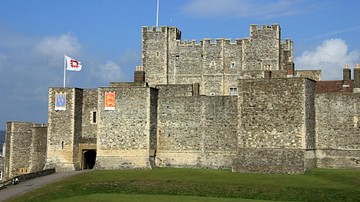
Definition
Medieval Castle
Medieval castles were built from the 11th century CE for rulers to demonstrate their wealth and power to the local populace, to provide a place of defence and safe retreat in the case of attack, defend strategically important sites like river...

Definition
British Industrial Revolution
The British Industrial Revolution (1760-1840) brought innovative mechanisation and deep social change. The process saw the invention of steam-powered machines, which were used in factories in ever-growing urban centres. Agriculture remained...

Definition
Ancient China
Ancient China produced what has become the oldest extant culture in the world. The name 'China' comes from the Sanskrit Cina (derived from the name of the Chinese Qin Dynasty, pronounced 'Chin') which was translated as 'Cin' by the Persians...
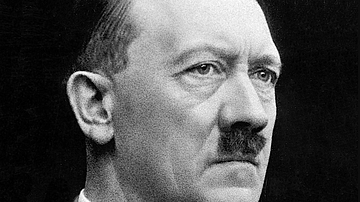
Definition
Adolf Hitler
Adolf Hitler (1889-1945) was the dictator of Nazi Germany from 1933. He gained power by making popular promises like improving Germany's economy and status in Europe, but when he took these policies too far, he was responsible more than anything...
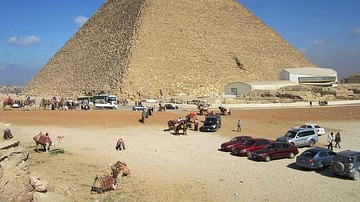
Definition
Great Pyramid of Giza
The Great Pyramid of Giza is a defining symbol of Egypt and the last of the ancient Seven Wonders of the World. It is located on the Giza plateau near the modern city of Cairo and was built over a twenty-year period during the reign of the...
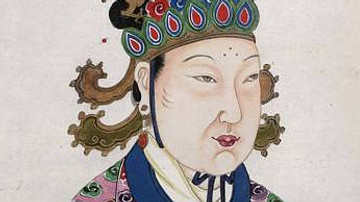
Definition
Wu Zetian
Empress Wu Zetian (Empress Consort Wu, Wu Hou, Wu Mei Niang, Mei-Niang, and Wu Zhao, l. 624-705 CE, r. 690-704 CE) was the only female emperor of Imperial China. She reigned during the Tang Dynasty (618-907 CE) and was one of the most effective...

Definition
Elizabeth I of England
Elizabeth I reigned as queen of England from 1558 to 1603. Her 44-year reign was so long and packed with momentous events that the second half of the 16th century is now known as the Elizabethan era and still regarded as a 'Golden Age' for...

Definition
Pompeii
Pompeii was a large Roman town in Campania, Italy which was buried in volcanic ash following the eruption of Mt. Vesuvius in 79 CE. Excavated in the 19th-20th century, its excellent state of preservation gives an invaluable insight into Roman...
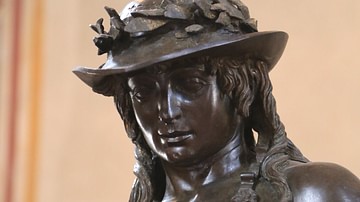
Definition
Donatello
Donatello (c. 1386-1466 CE), full name Donato di Niccolo di Betto Bardi, was an Italian Renaissance artist best known for his sculptures such as the striking bronze figure of David now in the Bargello museum of his native Florence. Donatello...
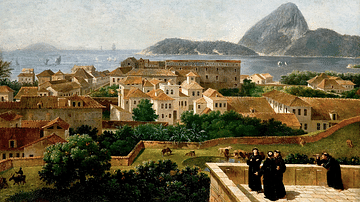
Definition
Portuguese Brazil
With a wealth of natural resources, Brazil was by far the most important colony in the Portuguese empire and was, at one time or another, the world’s leading producer of sugar, diamonds, and tobacco. Colonised from the 1530s, most settlements...